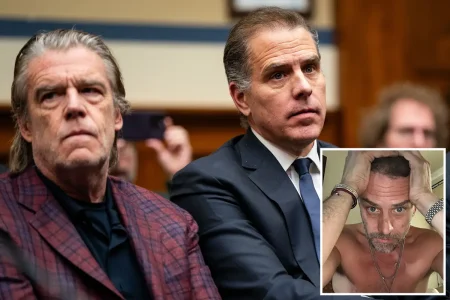Trump Plans Pivotal Meeting with Zelensky to Advance Ukraine Peace Efforts
Former President Makes Diplomatic Push as War Enters Critical Phase
In a significant development that could reshape the trajectory of the ongoing Russia-Ukraine conflict, former President Donald Trump is set to meet with Ukrainian President Volodymyr Zelensky in what observers describe as a renewed diplomatic push to broker a cease-fire agreement. This high-profile encounter comes at a critical juncture in the war, now entering its third year with mounting casualties and widespread destruction across Ukraine’s eastern regions. The meeting signals Trump’s continued involvement in international diplomacy despite being out of office, raising questions about the potential impact on current U.S. foreign policy and the upcoming presidential election.
The planned talks between Trump and Zelensky represent an unusual diplomatic initiative by a former president, especially one who maintains a complicated relationship with Ukraine dating back to his first administration. Trump’s previous interactions with Zelensky became central to his first impeachment proceedings, where he was accused of withholding military aid to pressure Ukraine into investigating political rivals. Despite this contentious history, sources close to both leaders indicate a willingness to engage constructively, with Zelensky reportedly open to exploring all diplomatic channels that might lead to a just peace. “President Zelensky has consistently maintained that Ukraine seeks peace through strength, not capitulation,” said a senior Ukrainian diplomatic official speaking on condition of anonymity. “While skeptical of any quick solutions, the Ukrainian leadership recognizes the importance of maintaining dialogue with influential American political figures across the spectrum.”
Strategic Timing Raises Questions About Political Motivations
The timing of this diplomatic overture has sparked intense speculation among foreign policy experts and political analysts alike. Coming amid an increasingly contentious U.S. presidential campaign where foreign policy has emerged as a pivotal issue, Trump’s peace initiative appears carefully calculated to bolster his credentials as an international dealmaker. Critics argue this represents political opportunism rather than substantive diplomacy, while supporters contend it demonstrates Trump’s unique ability to navigate complex geopolitical challenges. Dr. Eleanor Randolph, Senior Fellow at the Institute for International Security Studies, notes that “regardless of one’s assessment of Trump’s motives, this meeting creates a parallel diplomatic track that could either complement or complicate official U.S. efforts led by the current administration.”
The substance of Trump’s proposed cease-fire framework remains largely undisclosed, though sources familiar with the preparations suggest it may involve significant compromises from both Moscow and Kyiv. Previous statements by Trump indicate he believes he could end the war “within 24 hours” if elected president, a claim that has drawn skepticism from conflict resolution experts who point to the deeply entrenched positions of both warring parties. The territorial disputes in eastern Ukraine and Crimea, Russia’s security demands regarding NATO expansion, and Ukraine’s sovereignty claims present formidable obstacles to any lasting peace agreement. “Any viable cease-fire must address fundamental security guarantees for Ukraine while providing Russia with face-saving mechanisms to de-escalate without appearing to surrender its strategic objectives,” explains Dr. Mikhail Kovalev, Director of the Center for Eastern European Studies at Columbia University. “The devil is always in the diplomatic details, and sustainable peace requires painstaking implementation mechanisms that go far beyond handshake agreements.”
International Reactions Reveal Complex Diplomatic Landscape
The international community has responded with cautious interest to news of the Trump-Zelensky meeting, reflecting the complex geopolitical calculations at play. European allies, particularly those on NATO’s eastern flank most directly threatened by Russian aggression, have expressed concern about any peace proposal that might legitimize territorial conquests or undermine Ukraine’s sovereignty. A senior European Commission official, speaking on background, noted that “while all diplomatic efforts toward peace deserve consideration, any sustainable solution must align with international law and the UN Charter.” Meanwhile, Kremlin spokesman Dmitry Peskov offered a measured response, stating that “Russia remains open to genuine diplomatic initiatives while continuing to pursue its security objectives through all necessary means.”
The Biden administration finds itself in a delicate position, neither willing to dismiss a potential path to peace nor eager to see a former president conduct shadow diplomacy during an election year. State Department spokesperson Maria Thompson acknowledged the planned meeting while emphasizing that “official U.S. diplomacy continues through established channels in close coordination with our allies and partners.” Congressional reactions have largely fallen along partisan lines, with Republican leaders praising Trump’s initiative as bold leadership while Democratic lawmakers question both the timing and substance of the effort. Senator Mark Warner, who chairs the Intelligence Committee, expressed concern that “freelance diplomacy, however well-intentioned, can send mixed signals to both allies and adversaries at a time when clarity and unity are essential.”
Humanitarian Stakes Remain Central to Peace Calculations
Beyond the high-level geopolitics, the human toll of the conflict continues to mount, providing urgent moral impetus for cease-fire efforts regardless of their source. The United Nations has documented over 10,000 civilian casualties, millions of displaced persons, and widespread destruction of critical infrastructure across Ukraine. Humanitarian organizations operating in the conflict zone report deteriorating conditions for civilians caught in contested areas, with shortages of food, medicine, and basic services. Amidst this suffering, public opinion polls show growing war fatigue in both Ukraine and among its Western supporters, creating potential political space for peace initiatives even as military operations continue.
Religious leaders and civil society organizations have increasingly called for prioritizing humanitarian considerations in any peace negotiations. Pope Francis recently reiterated his appeal for an immediate cease-fire, stating that “the logic of weapons must give way to the logic of dialogue and reconciliation.” The World Council of Churches similarly urged all parties to “place the protection of human life above political objectives.” These moral appeals add another dimension to the diplomatic calculations surrounding the Trump-Zelensky meeting, potentially creating broader constituencies for peace despite the significant political and strategic obstacles that remain.
Prospects for Breakthrough Remain Uncertain Amid Conflicting Interests
As preparations continue for this unprecedented diplomatic engagement between a former U.S. president and a wartime Ukrainian leader, experts remain divided on the prospects for meaningful progress. Peace negotiations historically succeed when military stalemates make continued fighting increasingly costly for all parties, creating what negotiation theorists call a “mutually hurting stalemate.” Whether current battlefield conditions in Ukraine have reached this inflection point remains hotly debated among military analysts. General (Ret.) James Mattis, former U.S. Secretary of Defense, cautioned that “peace agreements signed from positions of weakness rarely endure,” while emphasizing that “all wars eventually end at the negotiating table.”
The Trump-Zelensky meeting represents just one element in an increasingly complex diplomatic chessboard, with multiple actors pursuing overlapping yet distinct agendas. China’s growing role as a potential mediator, Turkey’s continued facilitation of limited agreements on grain exports, and India’s carefully balanced position all suggest that any successful peace process will require multilateral engagement beyond bilateral U.S.-Ukraine initiatives. As this diplomatic drama unfolds in the coming weeks, the fundamental question remains whether the political will exists on all sides to make the difficult compromises necessary for peace. For the millions of Ukrainians living under the daily threat of violence, the answers cannot come soon enough, regardless of which diplomatic channel ultimately proves successful.










